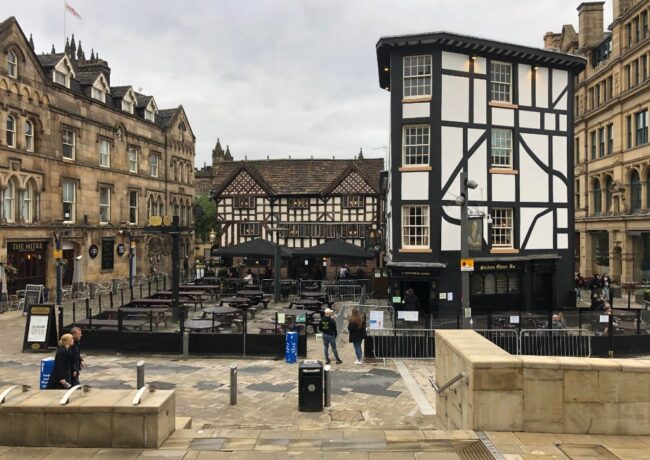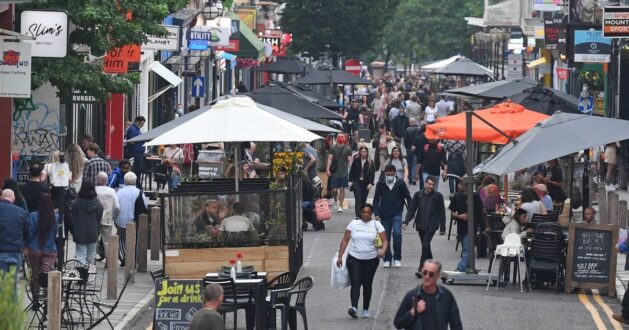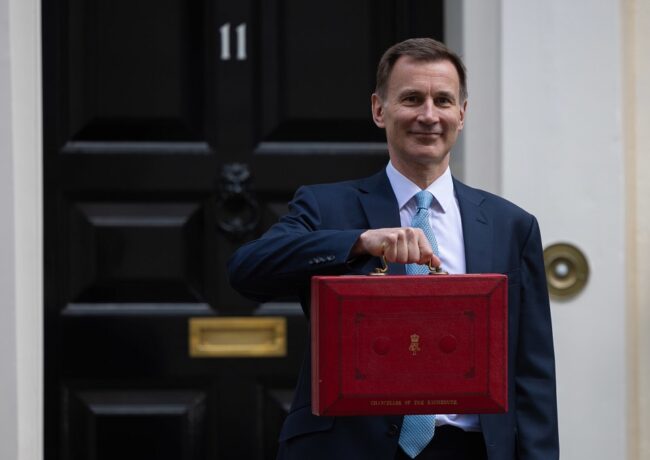IN FOCUS | Calls grow to support beleaguered hospitality industry
The region’s leaders have begged Whitehall to increase financial support for hospitality businesses, as parts of the North West stand on tenterhooks bracing for stricter lockdown rules this afternoon.
Liverpool is expected to be placed in the highest risk category, tier three, while Manchester could yet avoid the toughest measures, which would result in the closure of pubs, bars, casinos, betting shops and gyms.
Restaurants could remain open, even in tier three areas.
To support workers in the affected industries, the Government has promised to pay 67% of staff wages to those who work at venues forced to close.
The latest wages support scheme, which follows the furlough initiative launched at the beginning of the pandemic lockdown in March, will start in November and run for six months. However, regional leaders have demanded more.
In an open letter to the Government, mayors and other political leaders from Greater Manchester, Liverpool, Sheffield and Newcastle said: “Earlier this year, the Government set its national furlough scheme at 80%. We can see no justifiable reason why the local furlough scheme should be set at 67%.
“To accept it would be to treat hospitality workers as second-class citizens and we think that is wrong. Many of these workers have already faced severe hardship this year.”
“Employers wouldn’t get away with paying two-thirds of the minimum wage, so why should Government?” Liverpool Metro Mayor, Steve Rotheram asked.
At the same time, Sacha Lord, Greater Manchester’s night-time economy advisor, is preparing to launch a legal challenge to the Government’s proposed lockdown measures, claiming that there is no scientific evidence to support the closure of hospitality venues.
“Despite discussions and ongoing calls for data, we have yet to be shown any tangible scientific evidence that would merit a full closure of the hospitality and entertainment sectors across Greater Manchester. We have therefore been left with little choice but to escalate the matter further,” Lord said.
The move towards a legal challenge is supported by restaurant operator Living Ventures and local breweries Joseph Holts, Robinsons and JW Lees, among others hospitality groups.
The Government’s latest attempts to curb the transmission of Covid-19, which will also include a ban on non-essential travel outside tier-three areas, is expected to put extra pressure on an already-struggling hospitality sector.
“It is going to have a devastating impact on Liverpool city centre,” Bill Addy, leader of Liverpool BID Company, told Place North West.
“We need to see the scientific evidence that closing down a certain sector of the economy actually has an impact [in terms of curbing the spread of the virus]. We are going to see closures and job losses. As a city region we need to stand up and challenge – we can’t just accept what is happening,” he added.
Manchester City Council is still hoping to avoid the city centre restrictions that would result from being placed in tier three and talks with Whitehall over a resolution are ongoing.
Richard Leese, Manchester City Council leader, said hospitality venues should remain open as they provide a Covid-secure environment.
“Measures already taken by the Government are having a seriously negative impact on the economy in Manchester,” Leese said. “Further measures risk posing an existential threat for enormous numbers of our businesses and the people who work in them.”
Additionally, Leese called for the 10pm curfew imposed on hospitality venues last month to be scrapped. The curfew has been widely criticised by commentators, who claim it is doing more harm than good in terms of reducing infection rates.
The Government’s proposals to once again close hospitality venues follows the national Eat Out to Help Out initiative, which gave customers 50% off meals in restaurants over the summer in an attempt to provide a shot in the arm for the ailing hospitality industry.
Thom Hetherington, chief executive of the Northern Restaurant & Bar Show, said he had spoken to hospitality workers who had “given up hope” and were “emotionally broken” due to the situation.
“The hospitality industry has been thrown under the bus. We are the sacrificial lamb. It is going to be financially devastating for these businesses.
“They are not going to be adequately compensated if they do have to close. And if they have to exist in some kind of half-life with consumer confidence shot to pieces, then they are going to struggle to be viable,” Hetherington said.
While the hospitality industry is likely to be the biggest loser when it comes to the latest restrictions, commentators pointed out that the closure of one sector would have a knock-on effect on the supply chain, hotels and taxis firms.
Question marks over the Government’s handling of the pandemic will also continue to damage consumer confidence across the economy.
Caroline Baker, Cushman & Wakefield’s head of Manchester and the North, said the uncertainty surrounding the pandemic was one of the biggest issues for the economy and was causing a slowdown in terms of commercial transactions.
“It is very difficult for the Government at the moment, it is fighting a lot of battles and trying to balance health and the economy. It is difficult for [Government] to give assurances on anything.”
Prime Minister Boris Johnson is expected to announce the new restrictions at 3:30pm today in a press conference alongside Chancellor Rishi Sunak and chief medical officer Chris Whitty.
The restrictions are expected to come into force on Wednesday and last for four weeks before they are reviewed.








What about support for hospitality in neighbouring authorities to the effected areas? West Lancs etc, where ordinarily there is a lot of cross-boundary custom.
By Anonymous